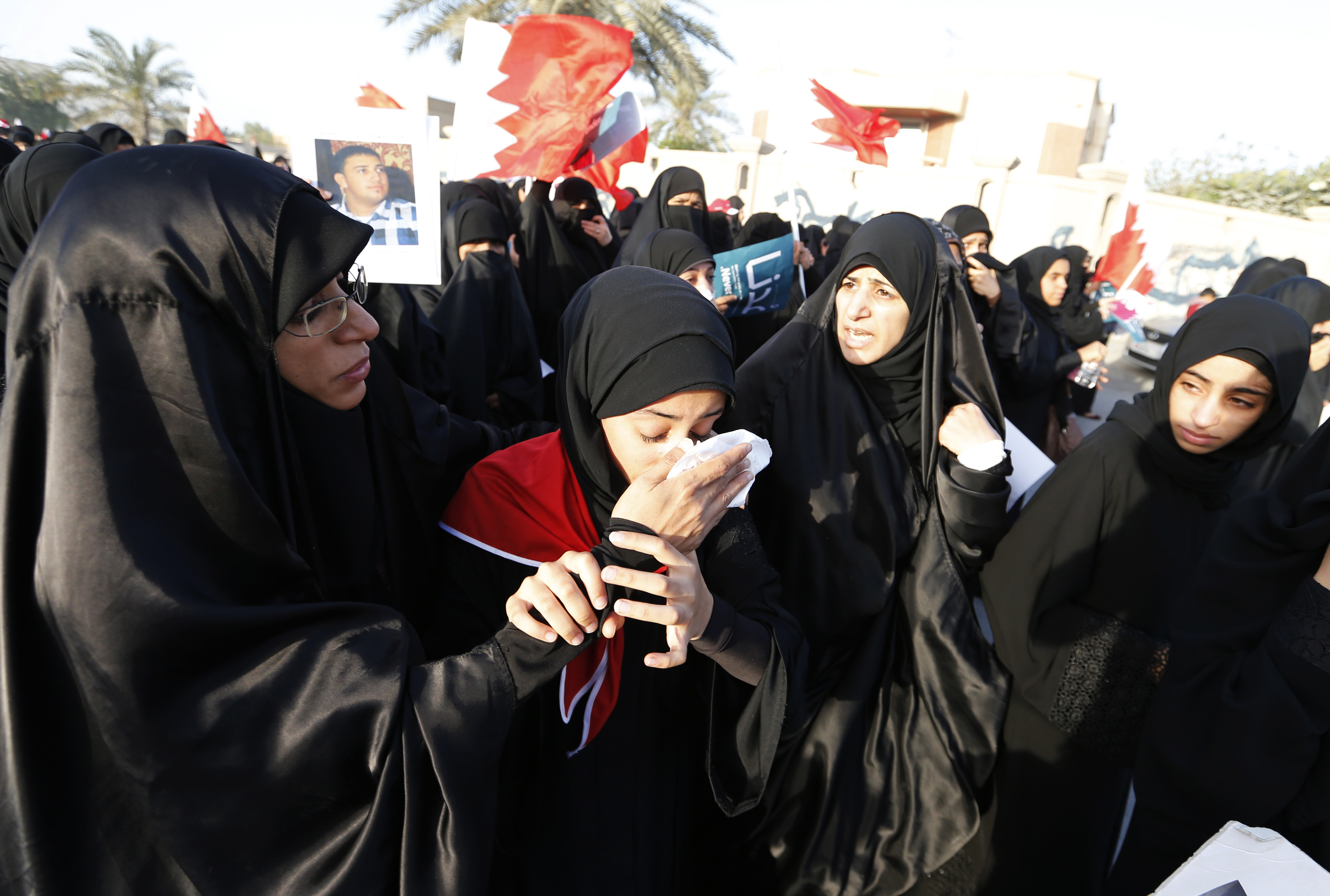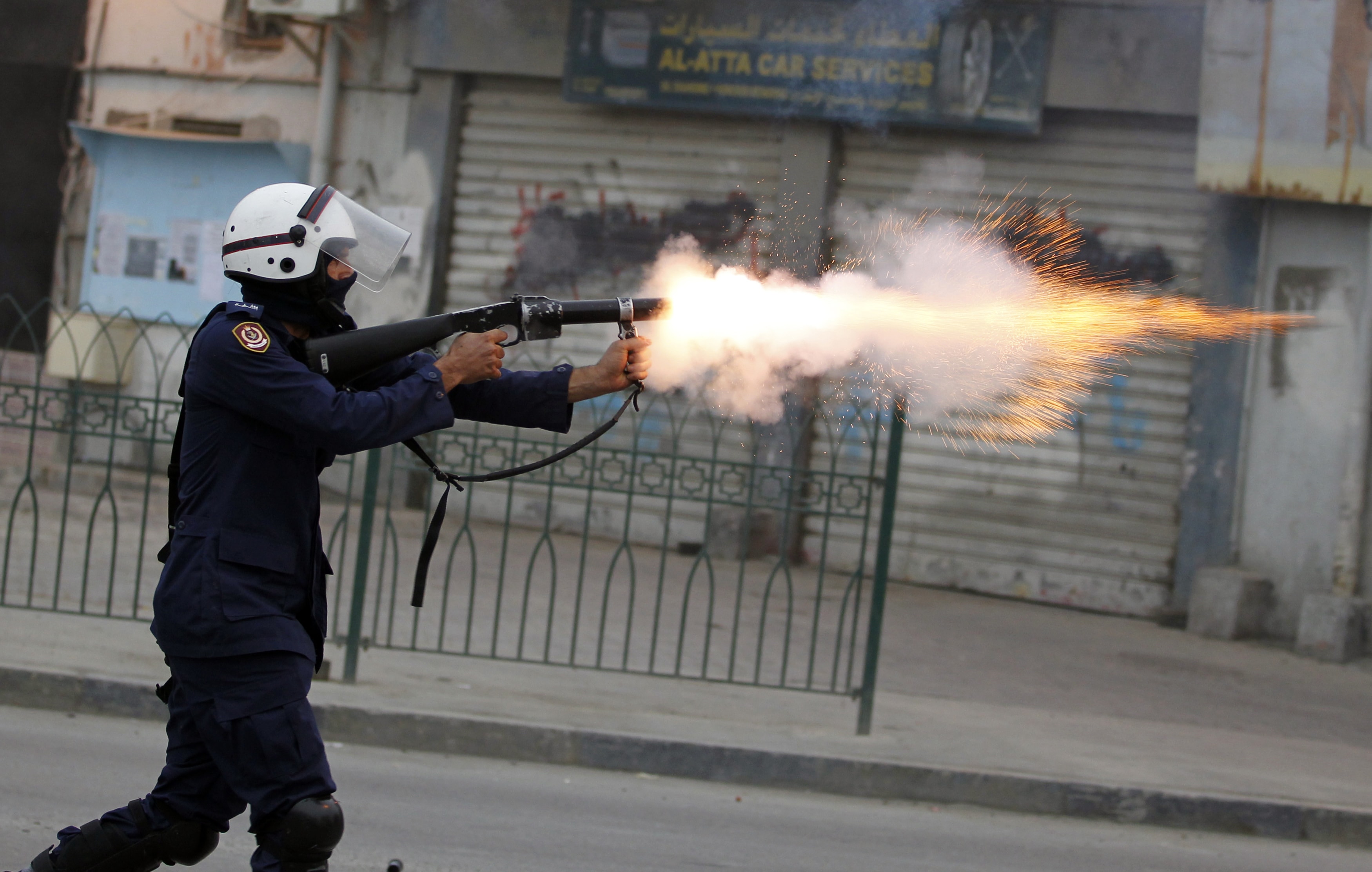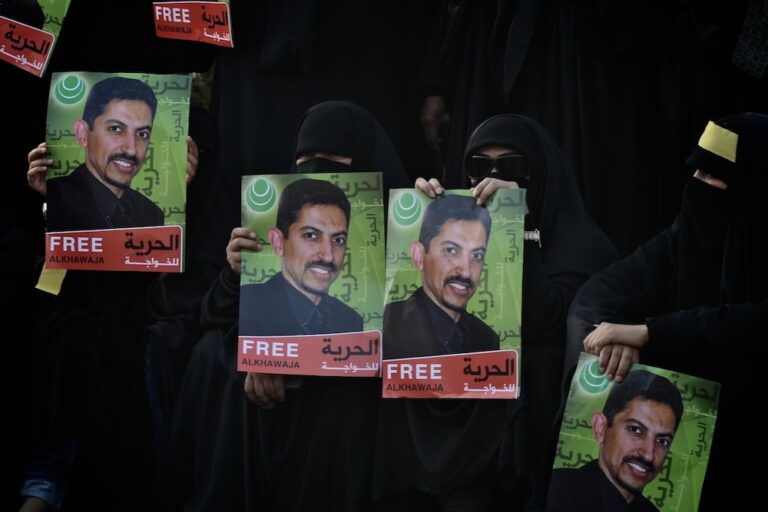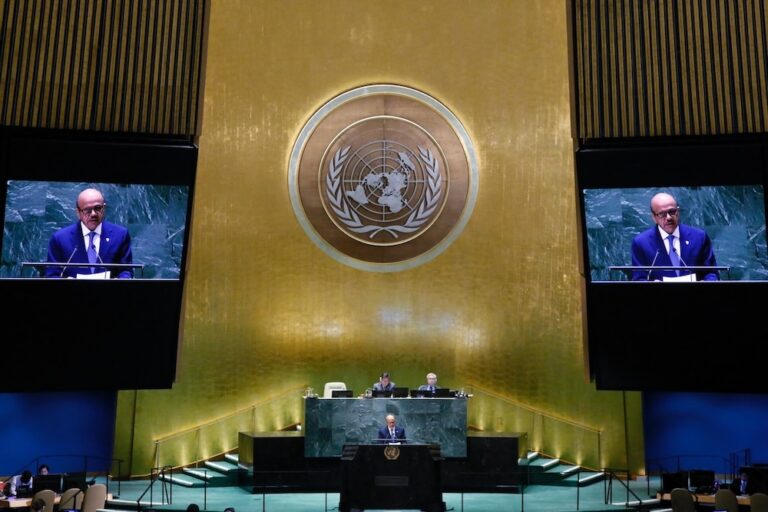A document apparently leaked from Bahrain's Interior Ministry indicates that the government wants to purchase 1.6 million canisters of teargas, raising concerns that it could be misused to suppress anti-government protests.
A document apparently leaked from Bahrain’s Interior Ministry indicates that the government wants to purchase 1.6 million canisters of teargas, raising concerns that it could be misused.
Bahraini security forces have repeatedly used teargas disproportionately and sometimes unlawfully in suppressing anti-government protests since 2011. This misuse has been implicated in more than a dozen deaths and serious injuries. It is not yet clear whether any supplier has agreed to provide the teargas nor if any government has issued an export license for such a transfer.
The Bahrain Independent Commission of Inquiry, the group of international jurists appointed by King Hamad to investigate human rights abuses in the government’s suppression of the 2011 pro-democracy protests, documented two deaths as a result of security forces firing teargas canisters at protesters’ heads, often at close range. The authorities have failed to hold security officers accountable for either death.
The commission documented another eight cases from 2011 in which teargas may have led to deaths from respiratory and cardiac complications.
The commission concluded that, “The number of teargas canisters fired at protesters was disproportionate to the size of the demonstration and the number of participants,” and that security forces fired teargas at private homes “in a manner that was unnecessary and indiscriminate.”
In August 2012, Physicians for Human Rights issued a 72-page report about what it called the Bahrain government’s “indiscriminate use of teargas as a weapon.”
In July 2012 and April 2013, Human Rights Watch reported further apparent misuse of teargas by Bahraini security forces in confronting protesters.
“No government should authorize the transfer of teargas to Bahrain until authorities there can show that it won’t be used to threaten people’s lives,” said Joe Stork, deputy Middle East director at Human Rights Watch. “Bahrain needs to show it will respect international standards for using teargas before any government should clear the way for sending more teargas to its government.”

Anti-government protesters assist another protester as she reacts after inhaling tear gas fired by riot police in the village of Sanabis in Bahrain on 15 March 2013REUTERS/Hamad I Mohammed



